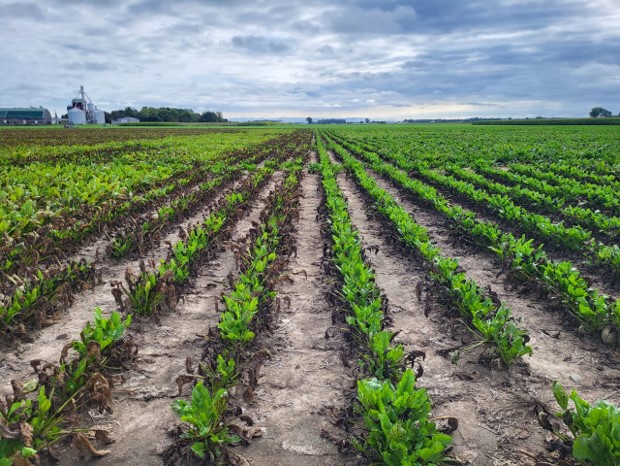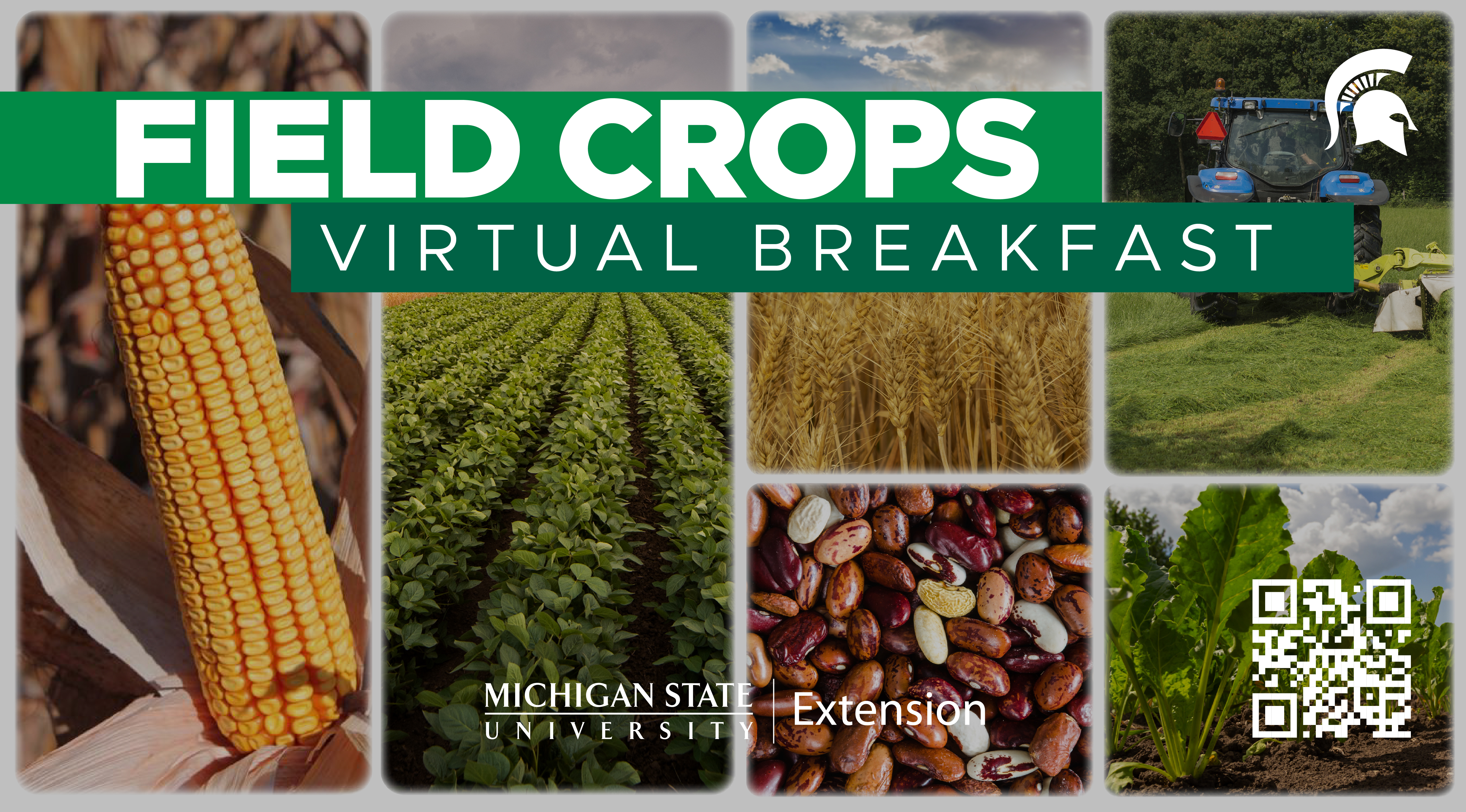Cercospora leaf spot control discussion with MSU Extension Virtual Breakfast
The 2025 Field Crops Virtual Breakfast Series continues June 12 with a discussion on Cercospora leaf spot control with MSU associate professor and Extension specialist Jaime Willbur.


Join the Michigan State University Extension Field Crops Virtual Breakfast Series on Thursday, June 12, 2025 with a discussion on identification and management strategies for Cercospora leaf spot. Jaime Willbur, PhD, is an associate professor at Michigan State University and an expert in research and Extension programs aimed at integrated management in sugarbeet diseases. As temperatures get warmer, mixed with increased periods of leaf wetness, early season disease control will be an important component to maximizing sugar content at harvest. This session will highlight the benefits of early-season control, disease identification and key management strategies.
Immediately following this week's topic, MSU Extension agricultural meteorologist Jeff Andresen will present a 15-minute weather summary and forecast. A question-and-answer period will follow. Other MSU Extension specialists and educators will be available for discussion.
Sign up for Field Crops Virtual Breakfast Series

The Field Crops Virtual Breakfast Series sessions from the MSU Extension field crops team are held every week during the growing season via Zoom. The Virtual Breakfast series keeps attendees informed of in-season updates and issues of concern for field crops. These virtual meetings take place every Thursday morning from 7-8 a.m., March through September 2025. Participants are encouraged to log into the Zoom link 5 minutes prior to the start time to ensure connectivity and receive announcements. The first half of each session includes a timely presentation from a topic expert and the weekly weather forecast. The second half of each session includes time for Q&A’s and updates with MSU specialists and educators.
Participating is easy and free! You can join the live meeting via Zoom using a computer, tablet, mobile device or regular phone line. If you are new to Zoom, simply download the Zoom app and you will be ready to join online every week to see visuals shared by presenters. A call-in by phone option is also available but note that you will only hear the audio portion.
Restricted use pesticide (RUP) credits and certified crop adviser (CCA) continuing education units are available most weeks for live attendees.
Participants must sign up to receive an email notification with instructions for joining the Virtual Breakfast. You only need to do this once and you will receive the Zoom link and call-in phone number, as well as weekly reminders every Wednesday and Thursday. Participants receiving emails can opt out at any time.
Sign up for Field Crops Virtual Breakfast Series
If you cannot participate in the live session at 7 a.m., you can view the recorded version at any time. However, only the live session will be eligible for RUP and CCA credits. Recordings will be closed-captioned and available at the Field Crops Virtual Breakfast webpage and the following MSU Extension field crops team social media platforms: Facebook, Spotify, YouTube, Apple Podcasts and Twitter/X.
If you are unable to sign up online, call the Montcalm County MSU Extension office at 989-831-7500 .
Follow @MSUEFieldCrops on Facebook, Spotify, YouTube, Apple Podcasts and Twitter/X for breaking news.
This work is supported by the Crop Protection and Pest Management Program [grant no 2024-70006-43569] from the USDA National Institute of Food and Agriculture. Any opinions, findings, conclusions, or recommendations expressed in this publication are those of the author(s) and do not necessarily reflect the view of the U.S. Department of Agriculture.



 Print
Print Email
Email